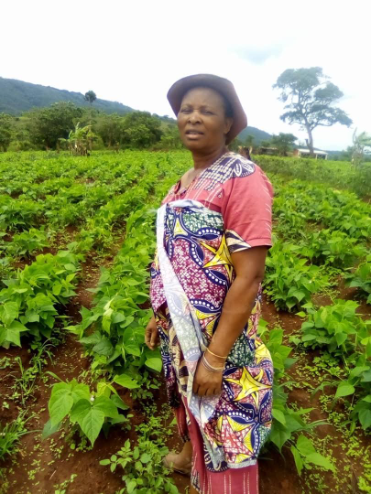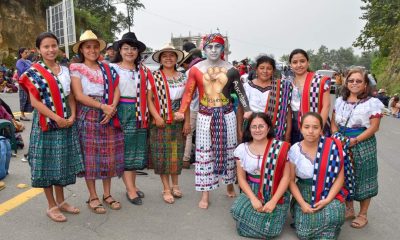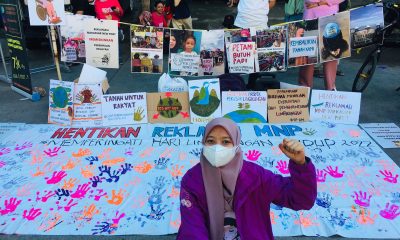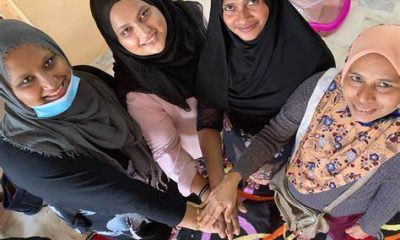By Laura Carlsen Km. 148 is a nodal point on the Interamerican Highway that connects…

The women organized in the Our Bodies, Our Lives (OBOL) Movement in Mzimba South East, Khosolo in northern Malawi have long faced the challenges of precarious livelihoods and lack of access to basic needs. But when the COVID-19 pandemic and climate change-induced drought struck, they found themselves on the edge of survival.
Thirty-three members of the local OBOL group – all women who are HIV+, sex workers, or have experienced gender-based violence – called an emergency meeting to figure out what to do. Desertification was drying up the food gardens they rely on for sustenance, and the COVID-19 pandemic had led to sharp increases in the price of food and the fertilizers they use for farming. As household income and food production fell, food insecurity became a daily reality.
The Challenge
The OBOL group examined their options and made the choice to manufacture their own fertilizer. By making organic fertilizer from materials on hand, they aimed to take control of their financial wellbeing and reduce reliance on expensive and environmentally destructive commercial fertilizers. The first challenge was to learn how. In September 2021, the women members participated in training sessions developed and led by the Malawi Ministry of Agriculture and JASS on producing organic manure-based fertilizer.
OBOL is a 9,800-strong movement that took shape through JASS’ support and accompaniment since 2008. After winning some massive gains on access to quality medicines for people living with HIV in Malawi, OBOL expanded their movement agenda to economic alternatives to address basic needs and ensure adequate and appropriate food and nutrition.
The Choice
The training focused on group dynamics and sustainable land management (“soil fertility technology”). The Ministry developed the technical content and JASS adapted it to a feminist approach and methodology, connecting the technical training on manure-making to economic independence and building the collective power of OBOL members. JASS also worked with the Malawi Broadcasting Corporation (radio and television) to livestream the training and produce a documentary that served to share the organic fertilizer approach and publicize the capacity-building of OBOL women. The wide publicity also supported OBOL women to break social norms that restricted their economic independence and provided another source of pride in their work.
“I am relieved from buying expensive fertilizers,” said Botchie Shaba, one of the training participants. The OBOL members now regularly apply their own organic fertilizer in their family and community gardens. Not only did women save the money they would have spent on commercial fertilizers, they also were able to sell their product to other farmers on a small scale.
While contributing to the community economy, the practice also serves to mitigate climate change impacts in Malawi. Organic fertilizer replenishes the soil in the long-term, which helps slow desertification due to climate change–a huge problem in Malawi. The training advanced a long-needed shift toward organic fertilizers that recovers traditional practices while incorporating new technologies.
The Change
Cutting off dependence on commercial fertilizers turned out to provide social as well as economic benefits for the women. By shaking their reliance on technical experts from the state and corporations and developing specific knowledge, information, and skills within their collective, or “hub” as they call the local OBOL groups, they increased their collective power and economic independence. Women earning independent income from the fertilizer and their food gardens have begun shifting patriarchal social norms that dictate that men are the only breadwinners in the family.
Today the OBOL women are both community organizers and trainers themselves. They regularly encourage and prepare other women in one-on-one interactions with friends and by forming small groups of women to learn and apply the technique. From the original 33 women, another 200 have been trained to use organic manure as an environmentally-friendly and cheaper fertilizer. The ripple effect of training and production is providing their families and communities with opportunities to become economically empowered and independent, and transforming power relations in the communities.
Unstoppable
The OBOL women use JASS’ power analysis to describe the changes they made in their lives, their communities and their organization. By developing agency and skills, they built power within to confront challenges, and power to stand up to economic hardship. In coming together to solve problems, they develop power with others, reflected in increased solidarity and collective action, sharing skills and knowledge on manure-making and building effective collective food gardens.
Their new knowledge is helping OBOL women increase the output of their gardens and reduce their reliance on oppressive patriarchal structures to provide for the household. In the face of disaster, they’ve improved the yield of their food gardens, created a new product to sell, and helped to make farming more sustainable.




























